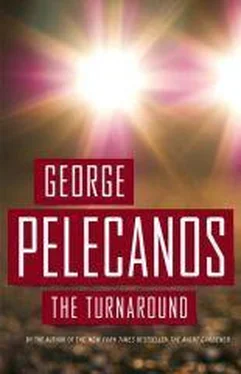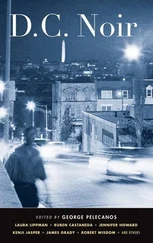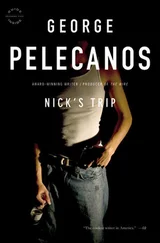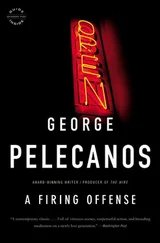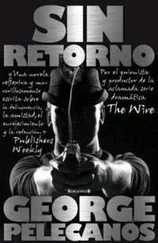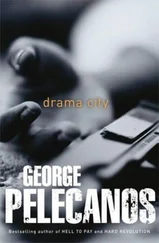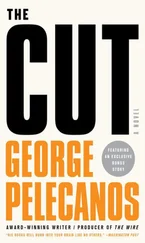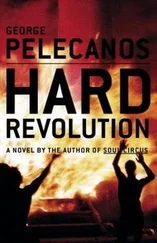George Pelecanos - The Turnaround
Здесь есть возможность читать онлайн «George Pelecanos - The Turnaround» весь текст электронной книги совершенно бесплатно (целиком полную версию без сокращений). В некоторых случаях можно слушать аудио, скачать через торрент в формате fb2 и присутствует краткое содержание. Жанр: Криминальный детектив, на английском языке. Описание произведения, (предисловие) а так же отзывы посетителей доступны на портале библиотеки ЛибКат.
- Название:The Turnaround
- Автор:
- Жанр:
- Год:неизвестен
- ISBN:нет данных
- Рейтинг книги:3 / 5. Голосов: 1
-
Избранное:Добавить в избранное
- Отзывы:
-
Ваша оценка:
- 60
- 1
- 2
- 3
- 4
- 5
The Turnaround: краткое содержание, описание и аннотация
Предлагаем к чтению аннотацию, описание, краткое содержание или предисловие (зависит от того, что написал сам автор книги «The Turnaround»). Если вы не нашли необходимую информацию о книге — напишите в комментариях, мы постараемся отыскать её.
The Turnaround — читать онлайн бесплатно полную книгу (весь текст) целиком
Ниже представлен текст книги, разбитый по страницам. Система сохранения места последней прочитанной страницы, позволяет с удобством читать онлайн бесплатно книгу «The Turnaround», без необходимости каждый раз заново искать на чём Вы остановились. Поставьте закладку, и сможете в любой момент перейти на страницу, на которой закончили чтение.
Интервал:
Закладка:
George Pelecanos
The Turnaround
PART ONE
One
He called the place Pappas and Sons Coffee Shop. His boys were only eight and six when he opened in 1964, but he was thinking that one of them would take over when he got old. Like any father who wasn’t a malaka, he wanted his sons to do better than he had done. He wanted them to go to college. But what the hell, you never knew how things would go. One of them might be cut out for college, the other one might not. Or maybe they’d both go to college and decide to take over the business together. Anyway, he hedged his bet and added them to the sign. It let the customers know what kind of man he was. It said, This is a guy who is devoted to his family. John Pappas is thinking about the future of his boys.
The sign was nice: black images against a pearly gray, with “Pappas” twice as big as “and Sons,” in big block letters, along with a drawing of a cup of coffee in a saucer, steam rising off its surface. The guy who’d made the sign put a fancy P on the side of the cup, in script, and John liked it so much that he had the real coffee cups for the shop made the same way. Like snappy dressers got their initials sewn on the cuffs of a nice shirt.
John Pappas owned no such shirts. He had a couple of blue cotton oxfords for church, but most of his shirts were white button-downs. All were wash-and-wear, to avoid the dry-cleaning expense. Also, his wife, Calliope, didn’t care to iron. Five short-sleeves for spring and summer and five long-sleeves for fall and winter, hanging in rows on the clothesline he had strung in the basement of their split-level. He didn’t know why he bothered with the variety. It was always warm in the store, especially standing over the grill, and even in winter he wore his sleeves rolled up above the elbow. White shirt, khaki pants, black oilskin work shoes from Montgomery Ward. An apron over the pants, a pen holder in the breast pocket of the shirt. His uniform.
He was handsome in his way, with a prominent nose. He had turned forty-eight in the late spring of 1972. He wore his black hair high up top and swept back on the sides, a little bit over the ears, longish, like the kids. He had been going with the dry look the past few years. His temples had grayed. Like many men who had seen action in World War II, he had not done a sit-up or a push-up since his discharge, twenty-seven years ago. A marine who had come out of the Pacific campaign had nothing in the way of manhood to prove. He smoked, a habit he had picked up courtesy of the Corps, which had added cigarettes to his K rations, and his wind was not very good. But the physical nature of his work kept him in pretty fair shape. His stomach was almost flat. He was especially proud of his chest.
He arrived at the store at five a.m., two hours before opening time, which meant he rose each morning at four fifteen. He had to meet the iceman and the food brokers, and he had to make the coffee and do some prep. He could have asked for the deliveries to come later so that he could catch another hour of sleep, but he liked this time of his workday better than any other. Matter of fact, he always woke up wide-eyed and ready, without an alarm clock to prompt him. Stepping softly down the stairs so as not to wake his wife and sons, driving his Electra deuce-and-a-quarter down 16th Street, headlights on, one cigaretted hand dangling out the window, the road clear of traffic. And then the quiet time, just him and the Motorola radio in the store, listening to the smooth-voiced announcers on WWDC, men his age who had the same kind of life experience he had, not those fast-talkers on the rock-and-roll stations or the mavres on WOL or WOOK. Drinking the first of many coffees, always in a go-cup, making small talk with the delivery guys who dribbled in, a kinship there because all of them had grown fond of that time between night and dawn.
It was a diner, not a coffee shop, but coffee shop sounded better, “more highclass,” Calliope said. Around the family, John just called the store the magazi. It sat on N Street, below Dupont Circle, just in from Connecticut Avenue, at the entrance to an alley. Inside were a dozen stools spaced around a horseshoe-shaped Formica-topped counter, and a couple of four-top booths along the large plate glass window that gave onto a generous view of Connecticut and N. The dominant colors, as in many Greek-owned establishments, were blue and white. The maximum seating was for twenty. There was a short breakfast flurry and a two-hour lunch rush and plenty of dead space, when the four employees, all blacks, talked, horsed around, brooded, and smoked. And his older son, Alex, if he was working. The dreamer.
There was no kitchen “in the back.” The grill, the sandwich board, the refrigerated dessert case, the ice cream cooler, the soda bar, and the coffee urns, even the dishwasher, everything was behind the counter for the customers to see. Though the space was small and the seating limited, Pappas had cultivated a large carryout and delivery business that represented a significant portion of the daily take. He grossed about three, three hundred and twenty-five a day.
At three o’clock, he stopped ringing the register and cut its tape. The grill was turned down and bricked at four. There was little walk-in traffic after two thirty, but he kept the place open until five, to allow for cleanup, ordering, and to serve anyone who happened to drop in for a cold sandwich. From the time he arrived to the time he closed, twelve hours, on his feet.
And yet, he didn’t mind. Never really wished he could make a living doing anything else. The best part of it, he thought as he approached the store, the night sky beginning to lighten, is now: bending down to pick up the bread and buns left outside by the Ottenberg’s man, then fitting the key to the lock of his front door.
I am my own man. This is mine.
Pappas and Sons.
Alex Pappas had had his thumb out for only a few minutes, standing on the shoulder of University Boulevard in Wheaton, before a VW Squareback pulled over to pick him up. Alex jogged to the passenger door, scoping out the driver as he neared the car. He looked through the half-open window, saw a young dude, long hair, handlebar mustache. Probably a head, which was all right with Alex. He got in and dropped onto the seat.
“Hey,” said Alex. “Thanks for stoppin, man.”
“Sure thing,” said the dude, pulling off the shoulder, catching second gear, going up toward the business district of Wheaton. “Where you headed?”
“All the way down Connecticut, to Dupont Circle. You going that far?”
“I’m going as far as Calvert Street. I work down there at the Sheraton Park.”
“That’s cool,” said Alex with enthusiasm. It was only a mile and a half or so down to the Circle from there, all downhill. He could huff it on foot. It was rare to get one ride all the way downtown.
An eight-track player had been mounted on a bracket under the dash. The live Humble Pie, Rockin’ the Fillmore, was in the deck, “I Walk on Gilded Splinters” playing in the car. Music came trebly through cheap speakers on the floorboard, the wiring running up to the player. Alex was careful not to get his feet tangled in the wire. The car smelled of marijuana. Alex could see yellowed roaches heaped in the open ashtray, along with butted cigarettes.
“You’re not a narc, are you?” said the dude, watching Alex survey the landscape.
“Me?” said Alex with a chuckle. “Nah, man, I’m cool.”
How could he be a cop? He was only sixteen. But it was common knowledge that if you asked a narc if he was one, he had to reply honestly. Otherwise, a bust would always be thrown out of court. At least that was what Alex’s friends Pete and Billy maintained. This guy was just being cautious.
Читать дальшеИнтервал:
Закладка:
Похожие книги на «The Turnaround»
Представляем Вашему вниманию похожие книги на «The Turnaround» списком для выбора. Мы отобрали схожую по названию и смыслу литературу в надежде предоставить читателям больше вариантов отыскать новые, интересные, ещё непрочитанные произведения.
Обсуждение, отзывы о книге «The Turnaround» и просто собственные мнения читателей. Оставьте ваши комментарии, напишите, что Вы думаете о произведении, его смысле или главных героях. Укажите что конкретно понравилось, а что нет, и почему Вы так считаете.
